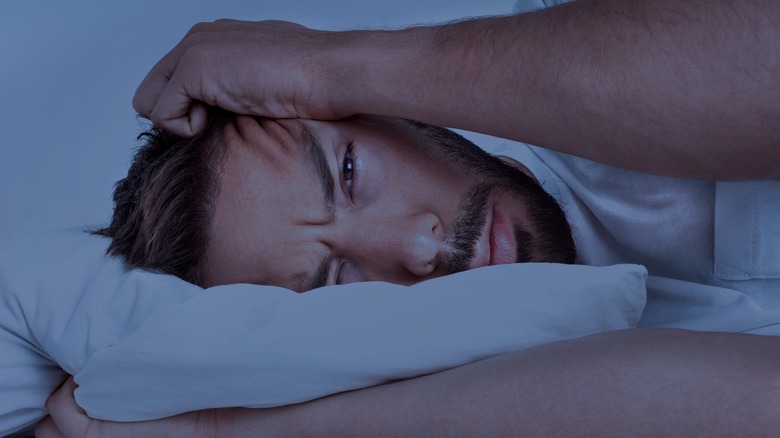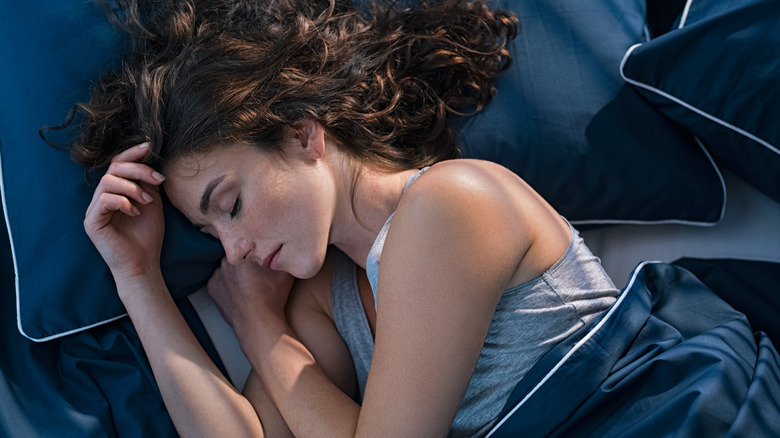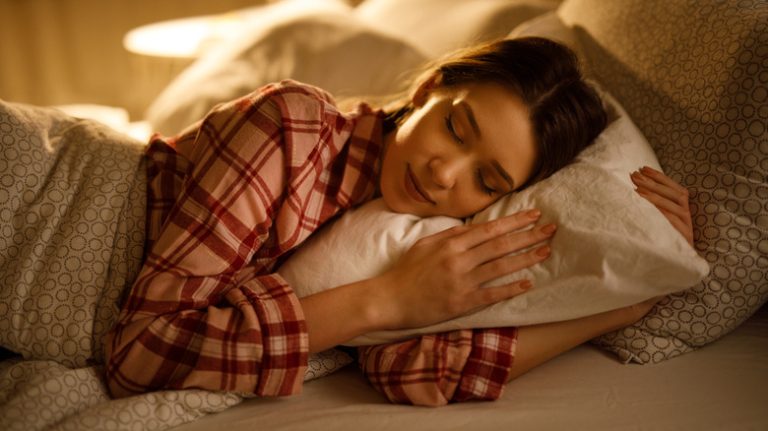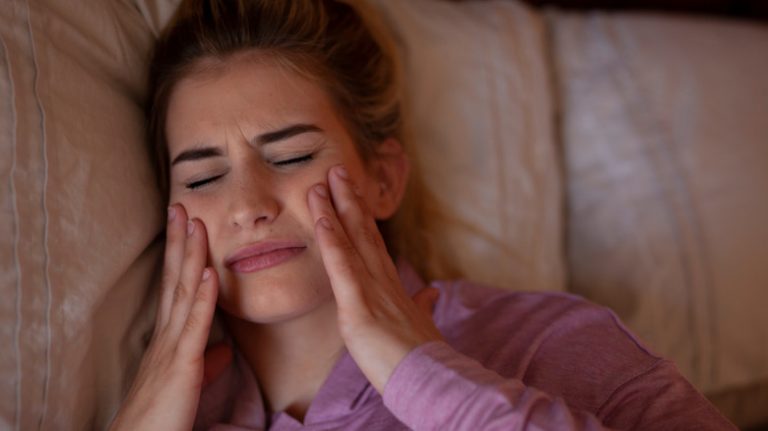Sleep is vital to your body’s health. According to John Hopkins Medicine, sleep is when the body undergoes various processes that reenergize your mind and body, helping you improve your overall well-being. Per the Centers for Disease Control and Prevention (CDC), adults between the ages of 18 to 60 need roughly seven or more hours of sleep every night to make the most of the sleep cycle processes.
Throughout the sleep cycle, you experience two phases — non-REM and REM. The non-REM sleep comprises four stages. The first stage occurs when you’re in between being awake and falling asleep. The second stage is when your heart rate regulates and the body temperature decreases. The third and fourth are the most critical deep sleep stages, as most of the memory and learning processes occur at this time, explains John Hopkins Medicine. On the other hand, the REM (rapid eye movement) phase is when you’re sound asleep, but your eyes move around a lot without sending any images to the brain (via WebMD).
The REM phase is initially short, but gets longer with each new phase. This is also the period when a person dreams. If you struggle with improving your sleep cycle, we’ll share some holistic tips to try at home.
How to improve your sleep cycle holistically

Per Mayo Clinic, it’s important to stick to a sleep schedule and have fixed routines for waking up and going to bed. This helps you get sufficient night’s rest and prevent the need to sleep in late. Moreover, a proper sleep schedule is necessary to gain the benefits of both non-REM and REM sleep.
For this reason, it’s advised not to consume heavy meals before bedtime, as they might cause indigestion and discomfort, preventing you from falling asleep. Moreover, experts suggest not using electronic gadgets before bed as it can lead to insomnia. According to Healthline, you may want to ensure no extra light in the room when you go to bed. Light may interfere with your sleep and increase restlessness throughout the night. Healthline also suggests avoiding drinking caffeine or alcoholic beverages before bedtime.
Similarly, Healthline advises keeping the bedroom environment free of noise. You may want to put your phone on silent mode and create a white noise using a fan, humidifier, or air conditioner to rest peacefully. CDC experts recommend exercises or some physical activity at night to help you quickly fall asleep. Many also choose herbal medicines or sleep aids to balance their sleep cycle. For instance, drinking chamomile tea before bedtime shows incredible results in helping you enjoy a much better sleep (via Insider).




